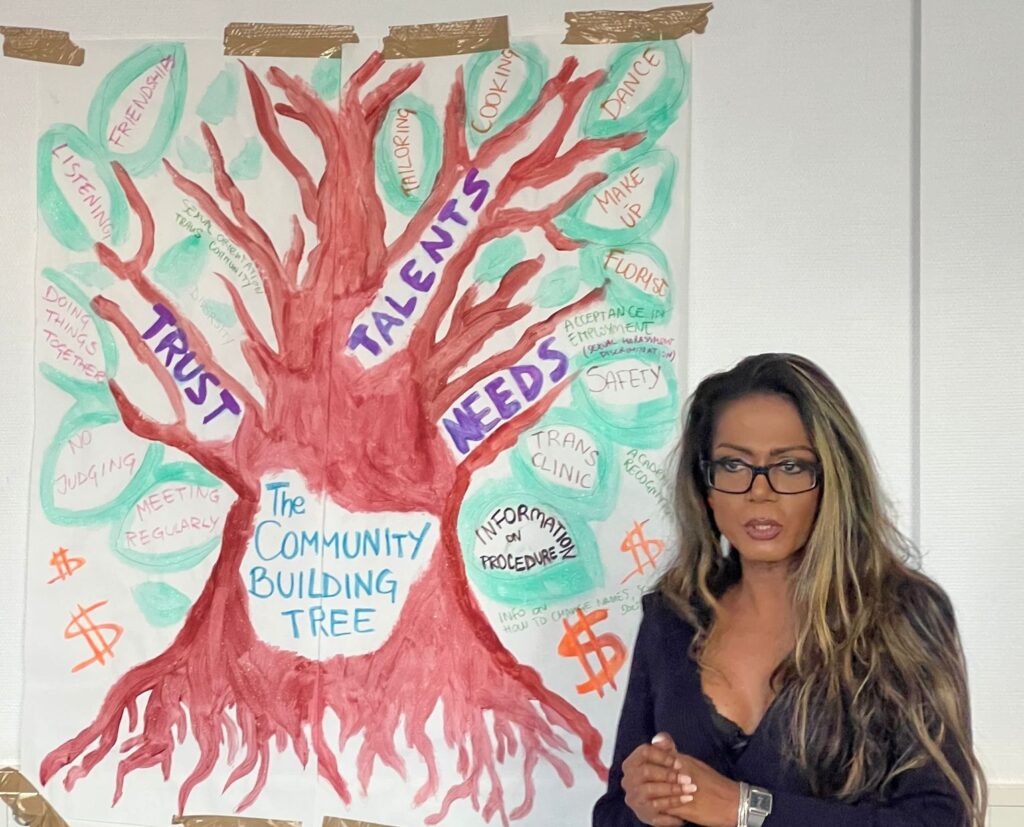This project aims at tackling the issues related to stigma against LGBTq+ sex workers new to the Netherlands. Particularly, in previous research conducted by SWARP (Sex Worker Action Research Project) and Sekswerk Alliantie Destigmatisering (SWAD), queer refugees in the south of the country appeared to be exposed to heightened risks of violence, isolation and difficulties in accessing transgender-specific medicaments. Indeed, most sex workers and transgender led organisations are located in the north of the country, and their outreach capacity in the areas of Brabant and Limburg is limited. Following this research, SWARP (Sex Workers Action Research Project) obtained a public grant to lead a Participatory Action Research to bring a broad community of stakeholders together to tackle such a complex issue. As PAR practitioners from SWARP, Daniela and Mischa interviewed LGBTq+ asylum seekers, municipality representatives from Tilburg, AZC and COA staff, academics and members of sex workers and LGBTq+ organisations. In the multiple rounds of data collection between February and June 2023, several needs and desires of the PAR community came to light, among which: the need for more information (on the asylum procedure, on transgender rights, on LGBTq+-specific healthcare support), the need for a transgender-specific clinic in the south, the desire of having a solid LGBTq+ community to rely on, the hope to build relationships of trust within such a community.
Moreover, many individual talents and skills emerged: from artistic and sport talents (tailoring, horse-riding, cooking, make-up, flower composition…) to organisational skills (project administration, financial auditing, team coordination…).
In the four focus groups that took place from June to July 2023, the community discussed their needs, interests and priorities, and agreed that their desired situation was to have a strong LGBTq+ community. Therefore, during the focus groups, the efforts were directed towards community building, a safe space where relationships of trust could be established. The objectives of such the creation of such a community range from addressing the group’s urgent needs as well as developing individual talents and skills. From these reflections, an action plan took form: the PAR community decided to work towards a fashion show (the Trans Sisters’ Fashion Show) with the following aims:
1. tackling the issue of stigma and self-stigma against transgender migrants and promoting bodies’ diversity;
2. putting individual strengths at the service of the community;
3. building trust within a strong queer refugee community by working together on a project.
Such action plan entails multiple steps, among which five sessions of tailoring workshops, a make-up academy, hair-styling and cat-walking workshops, and fundraising activities. The municipality of Tilburg offered support for the organisation of the final event, and other local organisations offered locations to host the workshops. A first workshop, consisting of a flower composition class given by a member of the PAR community, already took place at the Student Hotel in Eindhoven. The realisation of such activity boosted the confidence and the desire of the PAR community to continue working towards their planned goal. Generally speaking, the PAR community is showing great enthusiasm into playing an active role towards changing the current situation.

